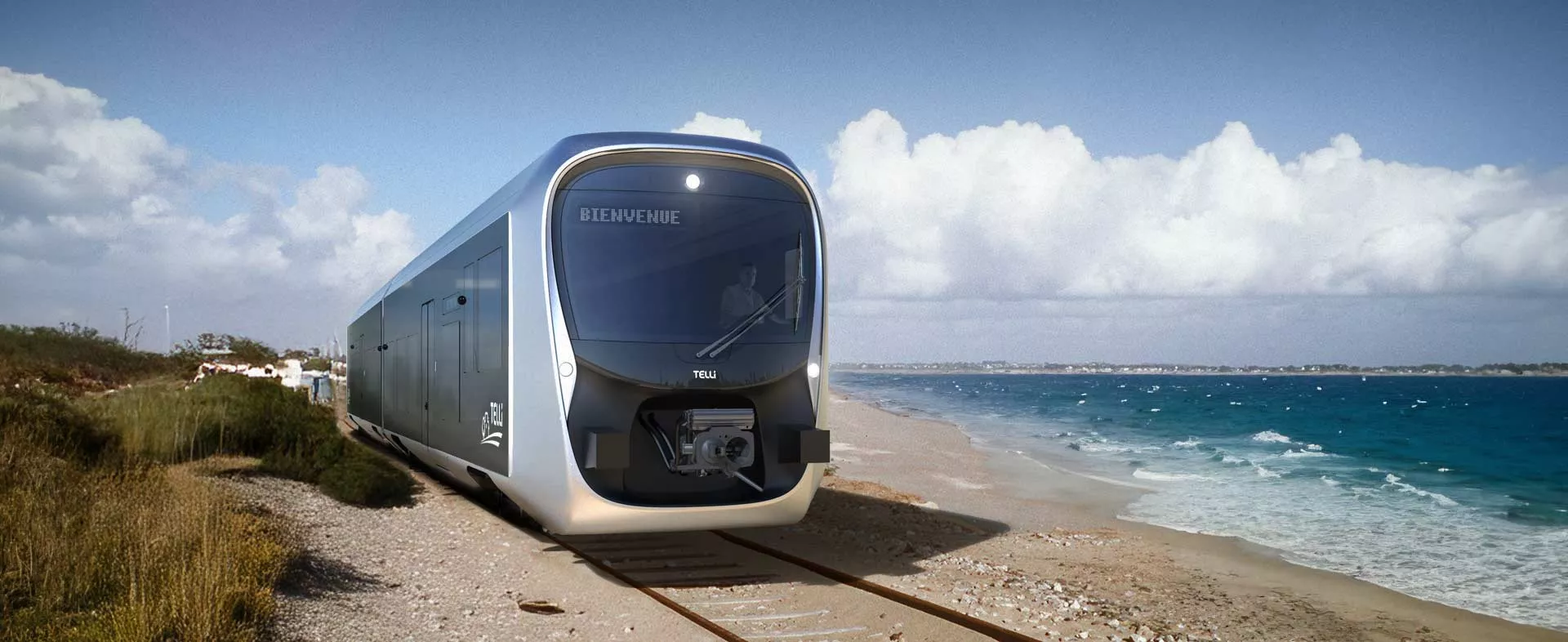
Revitalizing rural rail lines with TELLi
At SNCF, we’re using cutting-edge technologies to revive local lines and give small communities the affordable mobility they need.
TELLi, a concentrate of innovations
A third of the network
Small rural lines account for a third—about 9,000 km1—of the French rail national network. Operating these largely non-electrified lines successfully is a major challenge for France’s regions, which are eager to offer more decarbonized-mobility options in small communities while keeping transport costs under control.
TELLi is part of the solution. Together with partners in industry and the public sector, we’re harnessing cutting-edge technologies to expand our TER offer in suburban and rural communities.

€37M
co-funded by ADEME as part of the France 2030 investment plan

€89M
total development costs
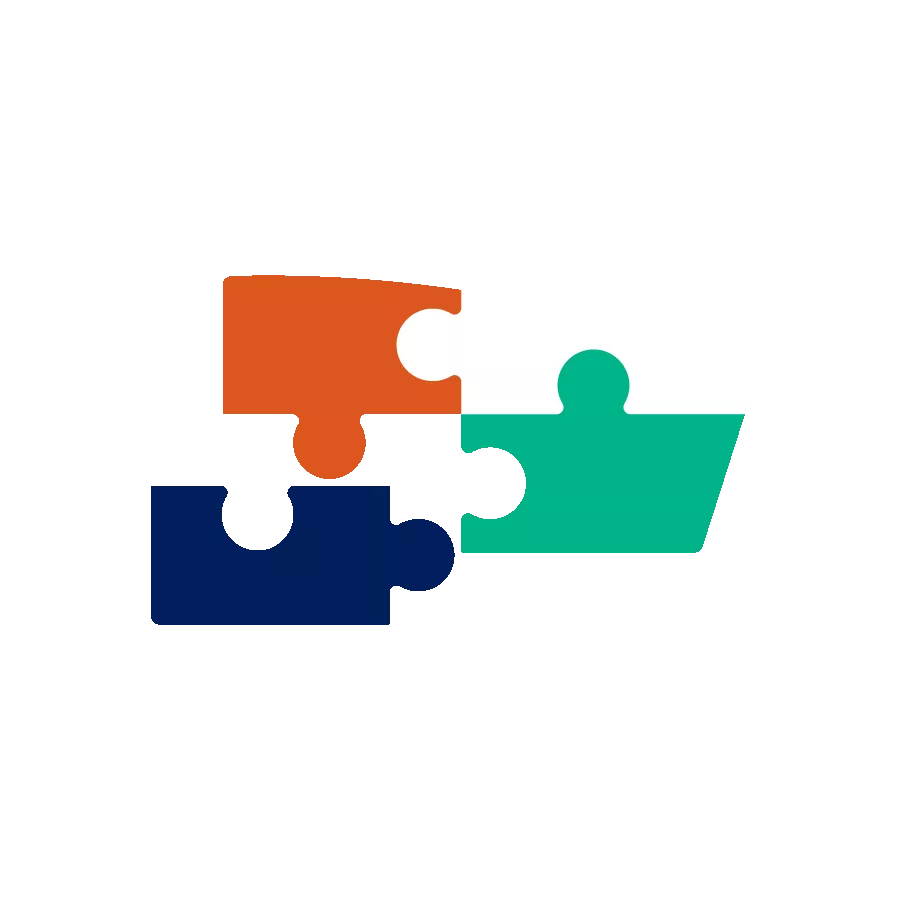
11
partners in the TELLi consortium
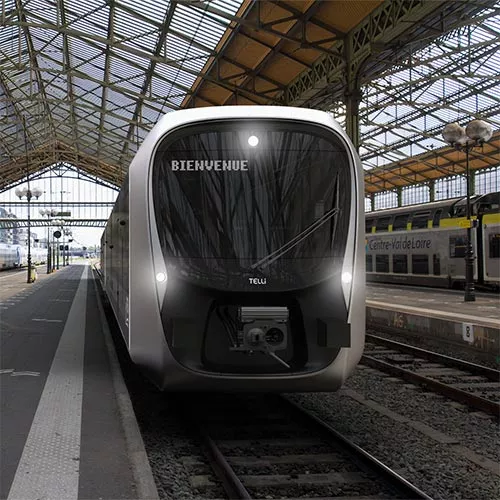
Why TELLi matters
In France, some 2 million people live within a 15-minute walk of a station served by a rural rail line. These “small lines” are a powerful asset in our push to offer a sustainable alternative to cars.
Cutting operating costs
Today, some of these lines are very lightly trafficked and barely profitable. France’s regions, acting as their own mobility authorities, are looking for ways to cut overall costs while expanding the transport offer on these lines.
Challenges for mobility authorities
- support the green transition by offering decarbonized transport solutions
- protect the right to mobility in rural communities
- offer economically viable mobility options
Redrawing the lines with TELLi, our innovative light train
Kicking off a virtuous circle
The TELLi Project aims to give French regions a solution that cuts total costs over the rail system’s life cycle. With more frequent service on small lines, local residents are more likely to choose rail. And as rural lines come back into the black, regions will want to run even more trains and add new services tailored to local needs.
It’s an incredible adventure, serving a vital goal for community life and the green transition.
Project Director

9,137
km of small rural lines

2032
TELLi could be launched by 2032

€89M
to fund TELLi
Our goals
- protect the environment
- use innovation to cut costs
- preserve connections between small rural lines and the national network
- increase service frequency
- create a modular interior that can adapt to local needs
Key technological innovations
TELLi offers a new approach, incorporating rolling stock, infrastructure and operations into a systemic whole.
Our research is centred around 6 key components:
a modular platform
ecodesign of the whole TELLi system
battery and/or hydrogen power
suspension system
a digital driver’s cabin
digitalized signalling, command and control, monitoring, infrastructure and rolling stock
TELLi’s partners tell all in a 5-part webinar
On 28 November, 2024, the TELLi consortium hosted its first webinar. The goal: introduce the project, share updates, and explain clearly the opportunities this new system offers. In the kickoff session, Annabelle Ferry (Director of Regions and Cities at Cerema), Jean-Aimé Mougenot (Executive Vice President TER at SNCF Voyageurs) and Olivier Bancel (Managing Director of Projects, Maintenance and Operations at SNCF Réseau), explain the challenges of serving rural communities across France’s regions. In 5 modules, the consortium’s 11 partners share the project’s ground-breaking innovations.
TELLi—tailored to local needs
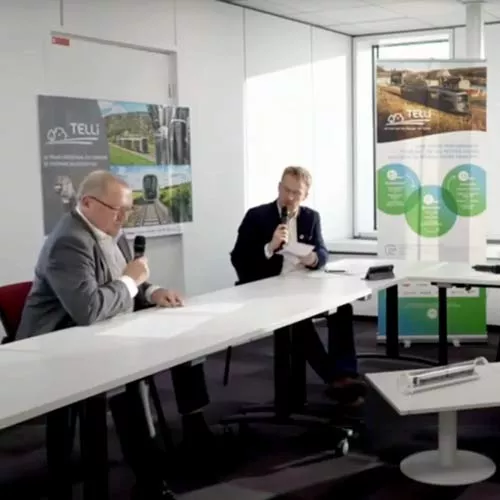
The birth of a consortium
The story behind the TELLi project—learn how and why an 11-partner consortium was created to develop this groundbreaking service.
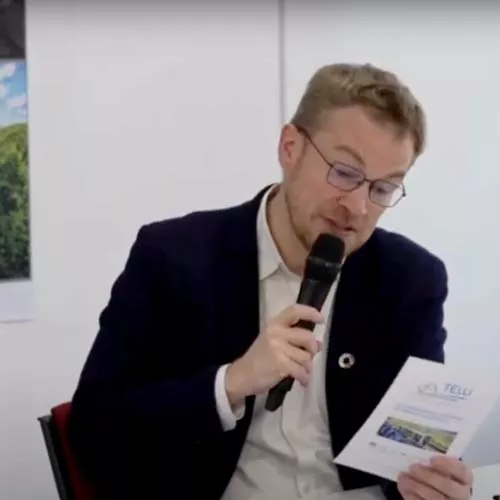
Boosting frequency while cutting operating costs
Discover how this innovative all-in-one system will deliver more trains, more often, more affordably.
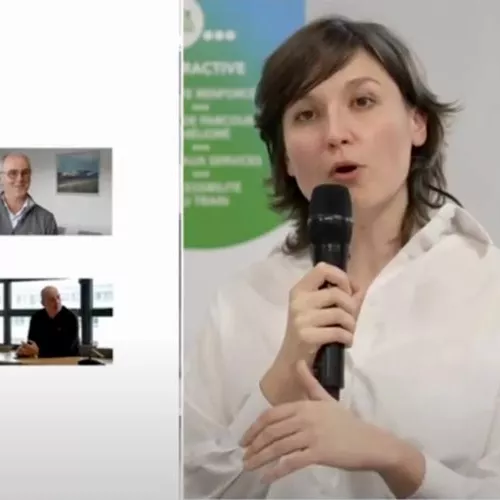
Serving passenger needs and new lifestyles
Find out how TELLi caters to passengers—with accessibility features—while addressing the needs of France’s regions.
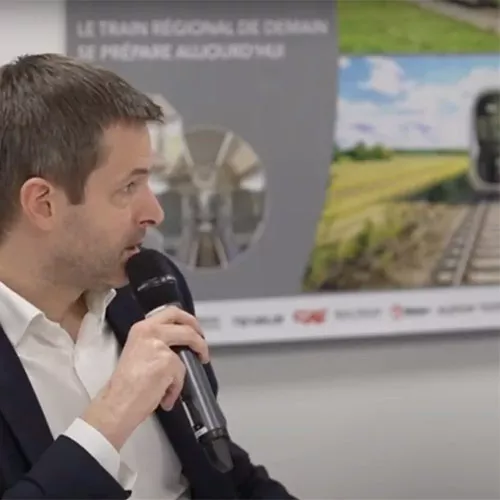
Balancing decarbonization and performance
Discover how TELLi’s innovative solutions are advancing the green transition in transport and improving quality of service.
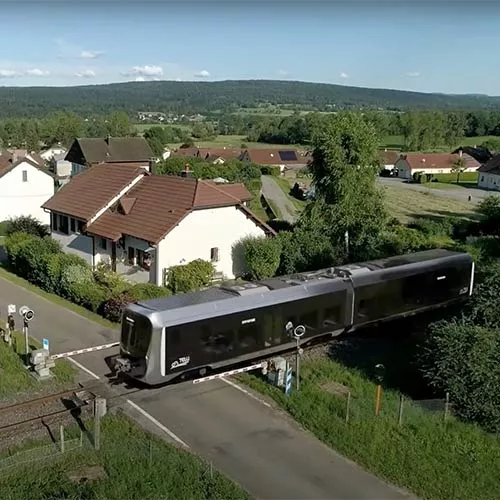
Experience the future with TELLi in 2025!
Starting next April in Saintes, southwestern France, visit the TELLi showroom to explore our innovative train system firsthand.
The TELLi consortium
To make this ambitious project a success, we formed a consortium of 11 partners with complementary skills. Some are major industrial groups (Thales, CAF, Wabtec, Alstom and Capgemini), while others are specialized SMEs (Texelis and Ektacom) or public entities (Railenium, Ferrocampus and Cerema). All are helping to energize their home communities, in the Paris region and beyond, and each has a specific mission.